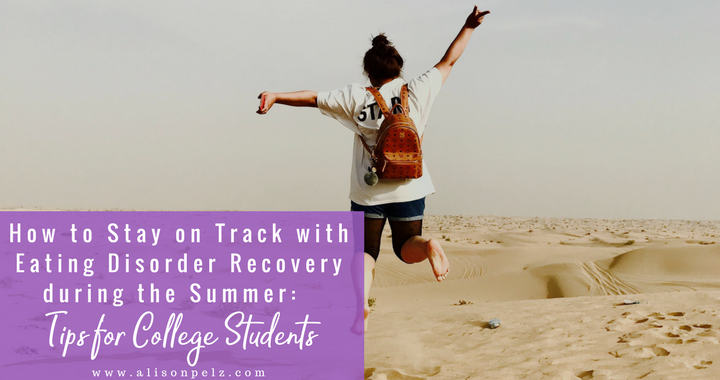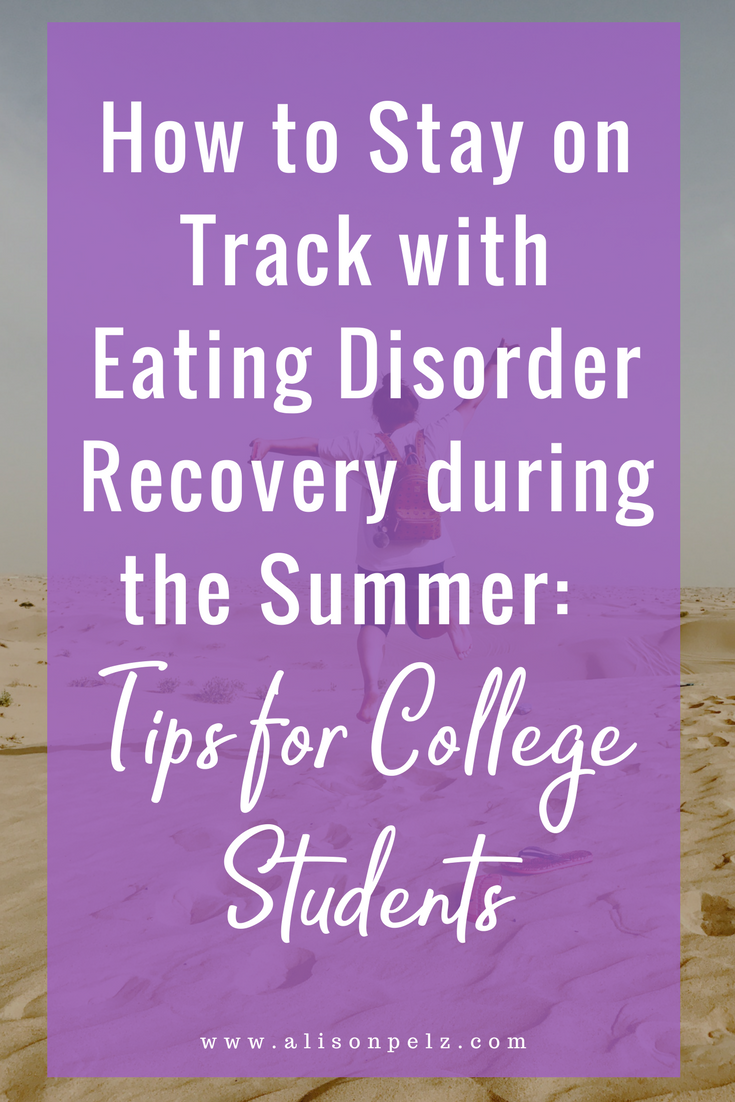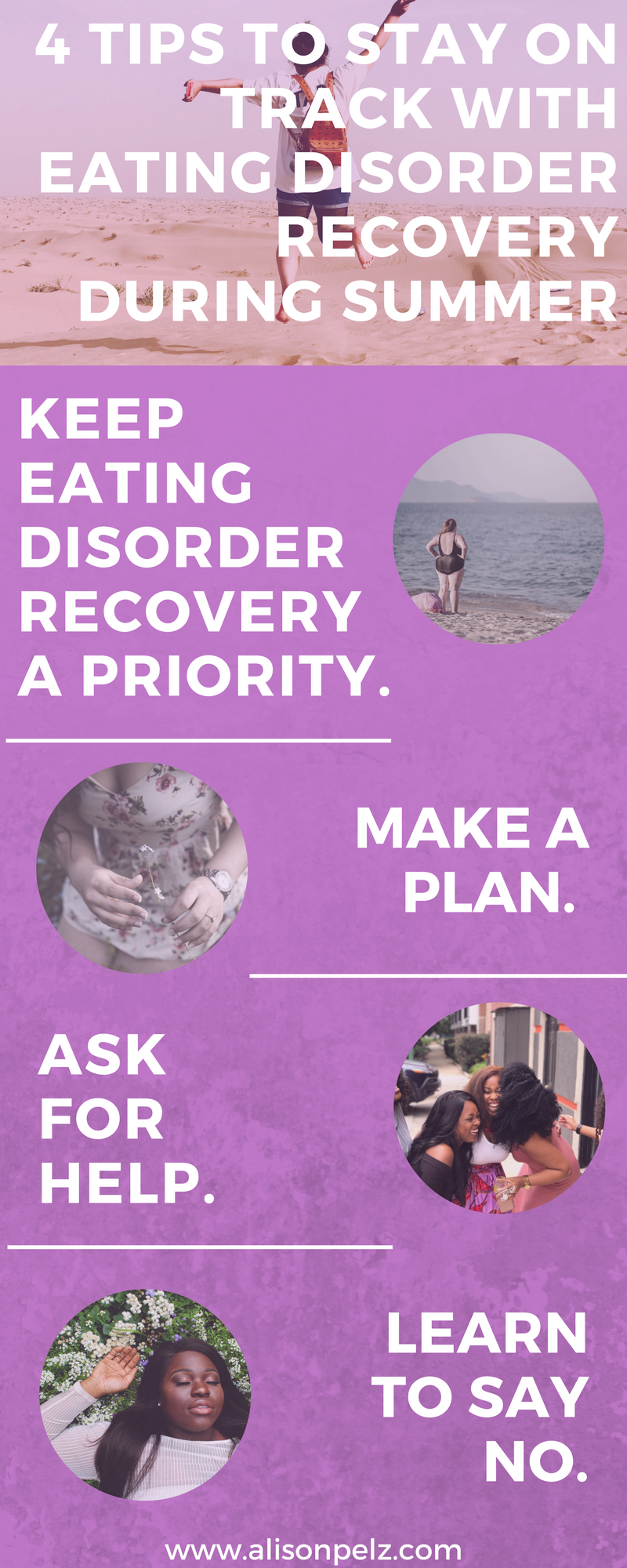Keeping on top of your eating disorder recovery can be tough during the summer months if you are a college student.
Summers in Texas are hot. I mean sweaty hot. Despite the heat, I love summer because it usually means more free time to spend with family & friends, fewer demands and most importantly – vacation. Everything just feels a little more relaxed during the summer. Summers in my college days were the best, whether I was taking a few summer courses, traveling abroad or hanging out home.
Keeping recovery a top priority during summer can be tough if you are a college student. Whether you are heading home or staying close to campus, eating disorders can become exacerbated in the summer.
Pitfalls of eating disorder recovery in the summer:
- Change in routine. During the summer schedules change. Most students are relieved because schedules become much less demanding during the summer. However, change in routine can be tough. Routines make us feel comfortable because we know what to expect. Routines can help you stay on track with your meal plan, treatment appointments, sleeping habits, etc. Disruption in routine can mean a disruption of established patterns of recovery.
- Less structured time. One common struggle in eating disorder recovery is being able to tolerate unstructured time. It isn’t uncommon for eating disorder sufferers to have an increase in eating disorder thoughts and behaviors when feeling bored, lonely, etc. During the summer there tends to be a lot more unstructured time.
- Reduction or increase in independence. Depending on your living situation, you may experience a decrease in independence if you are returning home for summer to live with your family. Returning to the family home may cause some stress because you are used to living away at college and making your own decisions. Or, if you are traveling or working away from family and friends, you may have a significant decrease in social support.
- Exacerbation of body image disturbance. Because of summer temperatures, we spend more time in bathing suits, short sleeves, and shorts which can often increase body checking and preoccupation of body weight and shape/size which can lead to an increase in eating disorder behaviors.
Although there are some potential obstacles during summer, there are several ways to keep the momentum of recovery going over the summer months.
4 tips to stay on track with eating disorder recovery during summer:
- Keep eating disorder recovery a priority. It is summer break from school, but not from recovery. Keep recovery front and center if you don’t want to backslide on the progress you have made! There are several ways to keep recovery a priority such as having regular check-ins with your treatment team, journaling about your progress and areas to improve on, reading books & articles about recovery, attending support groups, etc.
- Make a plan. Whatever your summer plans are, strategize ahead of time. How are you going to keep on top of your meal plan, self-care and treatment appointments? Talk to your treatment team in advance about your summer schedule. Collaborate with them on your care over during the summer months.
- Ask for help. Talk with your family, loved ones or support person about how you plan to stay on track with your eating disorder recovery. Discuss potential areas of concern, learn how to ask for help and communicate areas of success to loved ones. Interact regularly with your treatment team, particularly if you feel like you are struggling.
- Learn to say no. Taking on too much, particularly early on in eating disorder recovery, is an easy way to get derailed. This may mean saying “no” to fun social engagements, a job, an internship or a vacation in order to spend time on your recovery.
While there are ways to hinder eating disorder recovery over the summer, with planning and persistence you can keep recovery front and center!
Are you interested in learning more tips about eating disorder recovery? If so, sign-up for free tips here!



